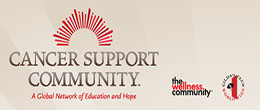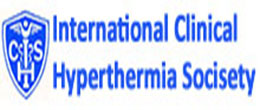Frequently Asked Questions - BCI
Q: What is Hyperthermia?
Hyperthermia, also known as thermal therapy or thermotherapy, is application of localized heat to the tumor area at a temperature of 113°F or 42.5°C. Heat is known to be damaging to cancer cells, while safe to the normal tissue. The process is simple: heat increases blood circulation, hence oxygenation of the cells, and oxygen is harmful to cancer cells. Studies show that hyperthermia is most effective in conjunction with other forms of cancer treatments, such as radiation therapy. Applying hyperthermia after the radiation treatment significantly improves the results. This approach has been approved by the FDA since 1984, and prior to that many studies have been performed in the leading medical institutions around the globe.Q: What type of cancer can be treated with Hyperthermia alongside low-dose radiation?
Skin, colon, neck, prostate, breast, head and neck (base of tongue, throat, and tonsils), thyroid, and bone. Here at BCI, we have been particularly successful treating breast cancer, including inflammatory breast cancer (IBC) as well as other anatomical sites.Q: What stages of cancer can be treated at BCI?
At BCI the average success rate for early stages of breast cancer, including inflammatory breast cancer (IBC), prostate and head and neck is about 80%. The average 5-year survival is also about 80%.Q: Are there any side effects from hyperthermia cancertreatment?
The sides effects of hyperthermia are minimum compared with the standard cancer treatments. Hyperthermia in conjunction with low-dose radiation may potentially cause some patients redness of skin after treatment, tiredness, temporary loss of taste and dryness of throat for head and neck cancer patients. Please note that the common side effects of conventional treatment for prostate cancer are impotence, loss of libido, incontinence and diarrhea. However with hyperthermia and low-dose radiation, prostate cancer patients don\'t experience those side effects as a result of treatment. In fact, 1/3 of BCI prostate cancer patients reported an increase in libido.Q: Is treatment covered by insurance? Most insurance companies including Medicare cover treatment at BCI.
Q: How are results compare with conventional therapies like surgery, high-dose radiation and chemotherapy?
The success rate of hyperthermia combined with low-dose radiation is 3-4 times higher than conventional treatment, as well as the survival rate in general.
Q:What is the level of expertise at Bicher Cancer Institute?
BCI has been in practice since 1984. The clinic is one of the largest hyperthermia treatment facilities in America. The founder and director of BCI , Dr. Bicher is one of the pioneers in using hyperthermia in conjunction with low-dose radiation to treat cancer. Dr. Bicher has published over 200 papers, many of which are related to hyperthermia cancer treatment in particular.Q: How do you apply radiation for treatment?
Low-dose Intensity-Modulated Radiation Therapy (IMRT). IMRT is the type of targeted radiation that contours the size and shape of the tumor from different angles. This approach allows radiation to directly treat the tumor itself and avoid touching healthy surrounding tissues.Q: What is the treatment like and how much time does each hyperthermia and radiation session take?
Hyperthermia treatment takes 45 minutes. Hyperthermia treatment is very gentle and can be soothing for patients due to the application of heat. During hyperthermia a patient has the ability to rest, take a nap, talk to a friend or family member in the treatment room, read a book, eat and listen to music. The radiation treatment is supposed to happen within one hour of receiving hyperthermia. Radiation usually takes 15 minutes. On average, a patient will spend about an hour and a half – two hours a day at the clinic for treatment.Q: Can a patient work while being treated at BCI?
Although it depends on the individual patient and his/her circumstances, many BCI patients continue with their regular work schedule. In fact, patients are encouraged to continue on with their normal lifestyles including exercisingTreatable Cancer Sites
Testimonials
This place was a miracle. I can't believe that everyone hasn't heard about Bicher Cancer Institute. Cancer free and enjoying life!






